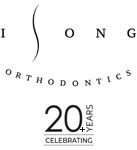Tooth Sensitivity and Braces
Sensitivity affecting teeth can affect how you enjoy foods or use your teeth. In addition, increased tooth sensitivity from thinned enamel can allow hot or cold sensations to be passed on to the inner tooth structure. In other cases, tooth sensitivity can result from habits such as bruxism.
Why Do I have Tooth Sensitivity?
Tooth sensitivity and its causes can be discussed with your dentist or orthodontist. There is no consistent or specific reason for why some individual patients experience sensitivity. The primary method of diagnosing a potential direct cause of high tooth sensitivity is through a dental exam.
Can Sensitivity Be Cured?
While there is no literal cure for treating tooth sensitivity. There are options to reduce discomfort. Over-the-counter toothpastes such as Sensodyne and Colgate Sensitive Pro-Relief can help treat the condition. Patients can also find relief from professional treatments involving a dental bonding agent or grafting new gum tissue. This will require a visit from a specialist.
How will Tooth Sensitivity Affect My Candidacy for Braces?
Sensitive teeth do not have to deter patients from achieving an aligned and structurally improved smile. Adjustments in oral health care practices and hygiene can help sensitivity and its associated conditions. This will enable you to resume orthodontic treatments such as receiving braces, Invisalign, or clear aligners.
